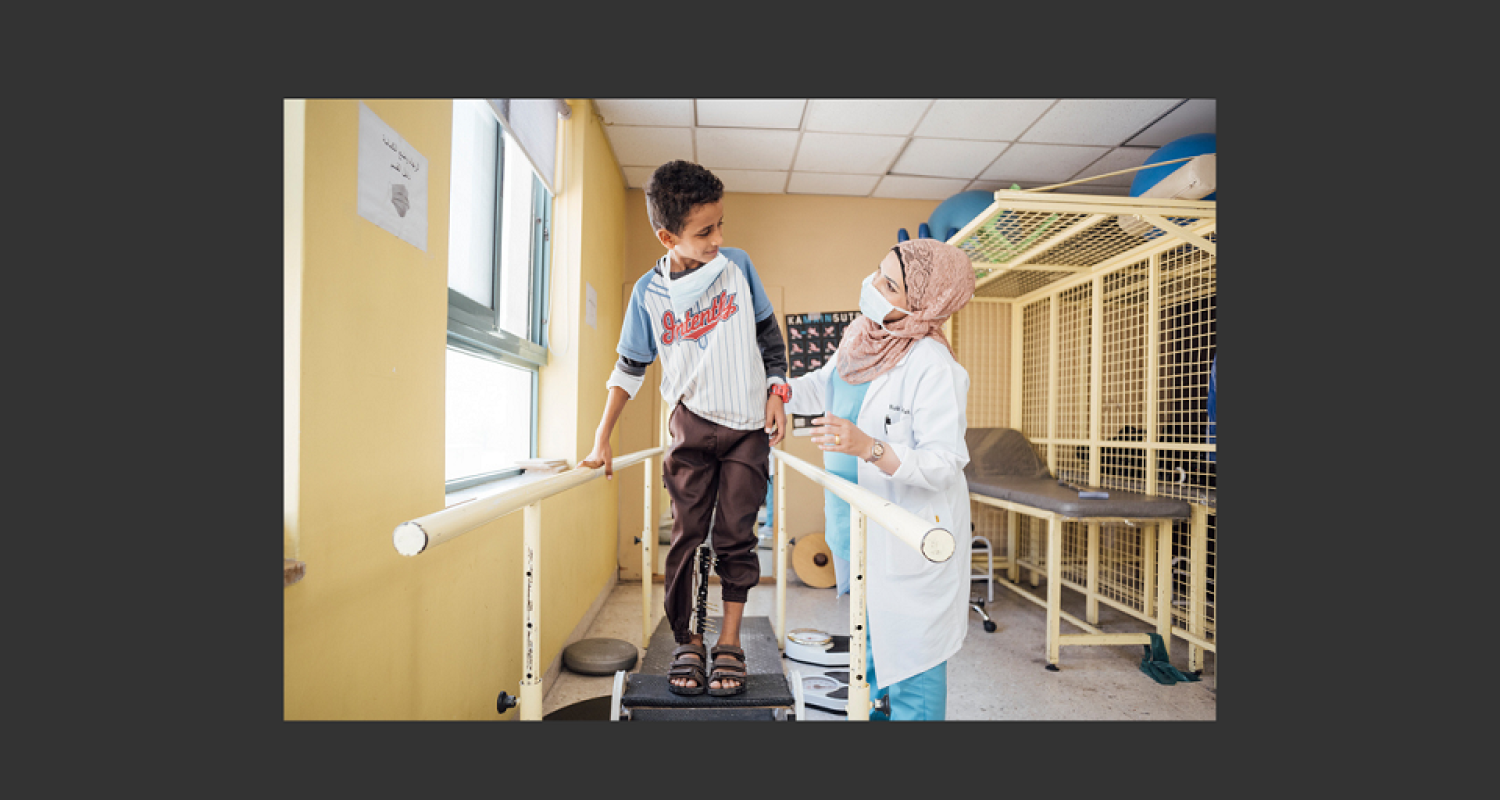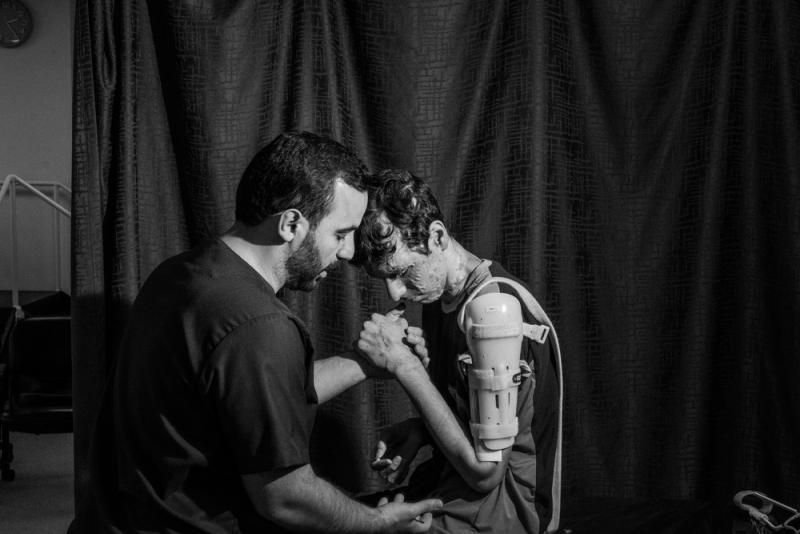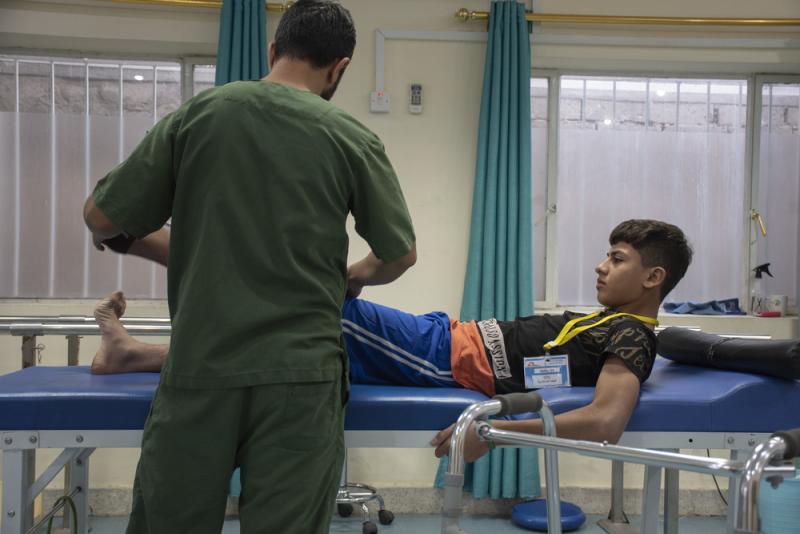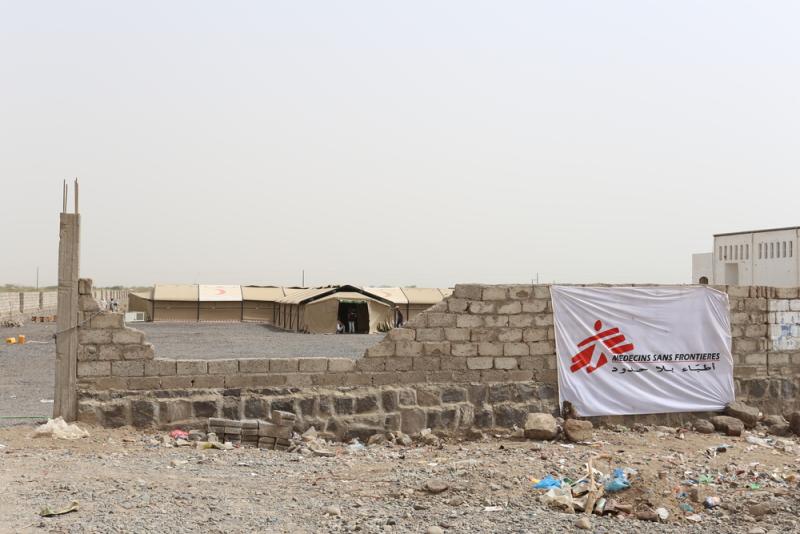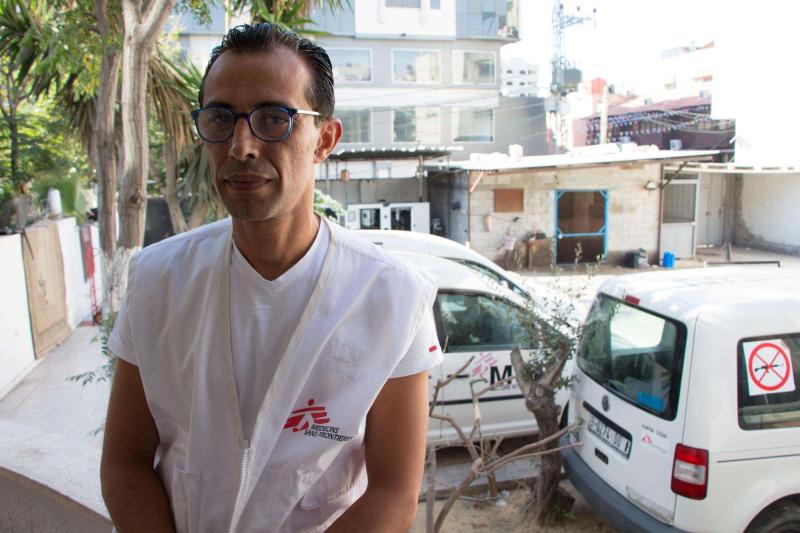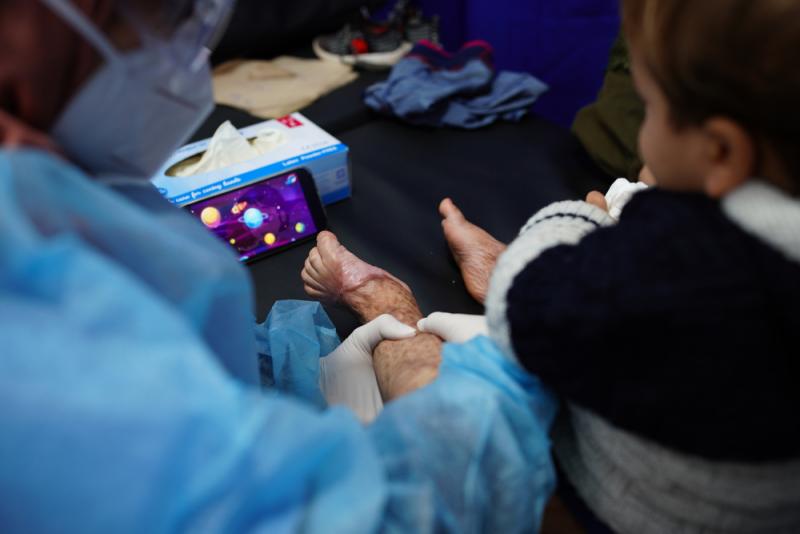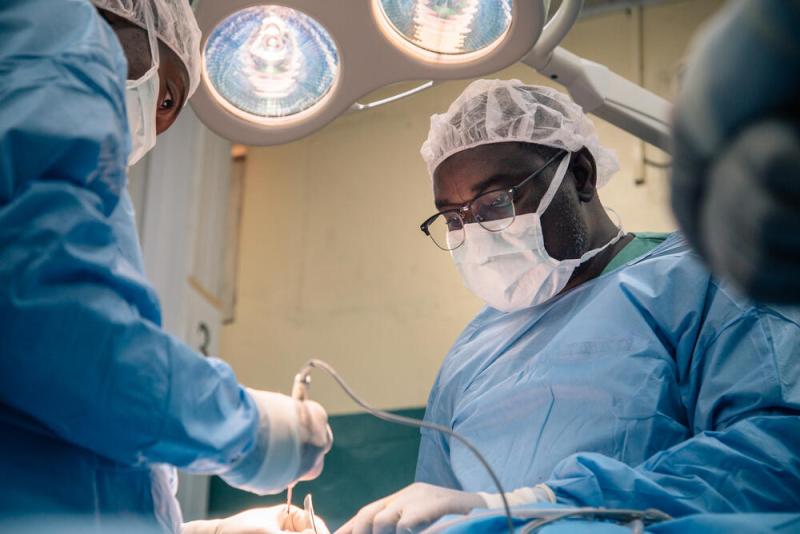Surgical care for people in precarious contexts
In the humanitarian setting, surgery and trauma care is usually associated with armed conflict. Our teams provide the highest quality of surgical and medical care to our patients caught in conflict and violence, or those without access to functioning healthcare systems. After trauma or war wounds, patients may need further reconstructive surgery. In Jordan, we run a dedicated reconstructive surgery hospital to reconstruct people's bodies damaged by bomb explosions, bullet wounds, shrapnel or severe burns. In tandem with physiotherapy, surgeons operate to restore functionality and mobility to patients.
However, we also provide surgical care for a variety of medical needs. This includes caesarean sections, and reconstructive surgeries for burn patients or for those suffering from Noma disease.
Latest Update
In Iraq, Doctors Without Borders team is providing post-operative care where patients need it in Baghdad.
Doctors Without Borders / Médecins Sans Frontières (MSF) highlighted how post-operative early rehabilitation is crucial to prevent health complications and improve the patient's quality of life. Furthermore, the experts emphasized the advantages of extending the model of care to a multidisciplinary approach that involves physiotherapy, nursing care and mental health.
Trauma Surgery
Doctors Without Borders runs projects that provides surgery and trauma care, mostly in conflict settings or areas afflicted with violence.
Our surgeons work in areas of urban violence or low-intensity conflict, where health structures are difficult to access or have been degraded. Patients are operated on as a result of injuries from gunshots or knives, after suffering from torture or physical abuse, or after accidents, including burns.
Treatment for the severely injured after escalation in Gaza, Palestine
We provide medical and psychological assistance to people affected by the ongoing conflict in the West Bank and Gaza, Palestine. In Gaza, the local healthcare system is overstretched, underfunded and deeply impacted by a 15-year blockade.
We provide to people affected by burns and trauma with a multi-disciplinary approach which can include surgical care, physiotherapy, occupational therapy, health education, and psychosocial support. We also started running mobile clinics to address the health needs of communities in Masafer Yatta, who are facing home demolitions and an increased risk of forcible transfer.
Performing trauma surgery in the world’s forgotten wars
For civilians in a conflict zone, bomb blasts don’t happen just to individuals--they happen to families and to communities. Doctors Without Borders first started the trauma surgery project in Tal Abyad hospital in Syria, as a humanitarian response to the siege of Raqqa.
The Doctors Without Borders trauma response in the north of Syria--similar to that of our project in the south, and to others in Yemen and Iraq--focuses on the treatment of blast wounds and high-velocity projectile injuries, reflecting the sophistication and large military resources of the parties behind these conflicts. These interventions require technical expertise in resuscitation, critical care, care of burn wounds, and the treatment of complex abdominal, vascular and orthopaedic injuries.
Reconstructive Surgery
The opening of a surgical programme has a number of prerequisites that need medical and logistics resources, such as sterile conditions, qualified personnel, and post-operative capacity.
Reconstructive surgery fixes defects you were born with, defects caused by disease, and defects caused by injury. This procedure is different from cosmetics because it’s done for medical reasons. Doctors Without Borders is an international medical organisation that works in more than 70 countries, it has projects where this surgery is essential to support the community.
For the past 15 years, the Middle East has been the ground zero of a growing number of conflicts, in Iraq, Syria, Lebanon, Yemen, and Palestine. After the Iraq War began in 2003, many people suffered life-changing injuries. Often these injuries were left untreated, and they worsened as a result.
People were left immobile, sometimes bedridden and unable to eat or speak. Victims of bomb explosions, bullet wounds, shrapnel and severe burns require very specific operations; specialising in orthopaedic, maxillofacial (injuries to the neck, face and jaw), and plastic surgery.
Mobile Surgery
Having to provide surgical services where the needs are greatest--but perhaps where there may not be a suitable hospital for hundreds of kilometres--Doctors Without Borders uses several solutions, including an 'inflatable' surgical tent. Sophisticated, portable, but sterile, it can be moved and set up within 48 to 72 hours in areas of conflict or a region affected by a natural disaster. More recently, our teams have developed the MUST, a mobile operating room in a trailer, which allows teams to move quickly to needed areas.
Caesarean Sections
Our teams delivered over 12,000 babies via caesarean section in 2021, focused on helping mothers with life-threatening pregnancy complications. Caesarean sections are performed on women suffering from pre-eclampsia (pregnancy-related high blood pressure), obstructed labour, or when the baby is in breech position (feet down).
Post-Operative Care
Post-operative care is an essential part of surgery, to prevent and treat infections, to monitor how the wound is healing, and to avoid complications. Post-operative care is an integral part of our surgical projects. We also provide physiotherapy to enable people to recover as much mobility as possible.
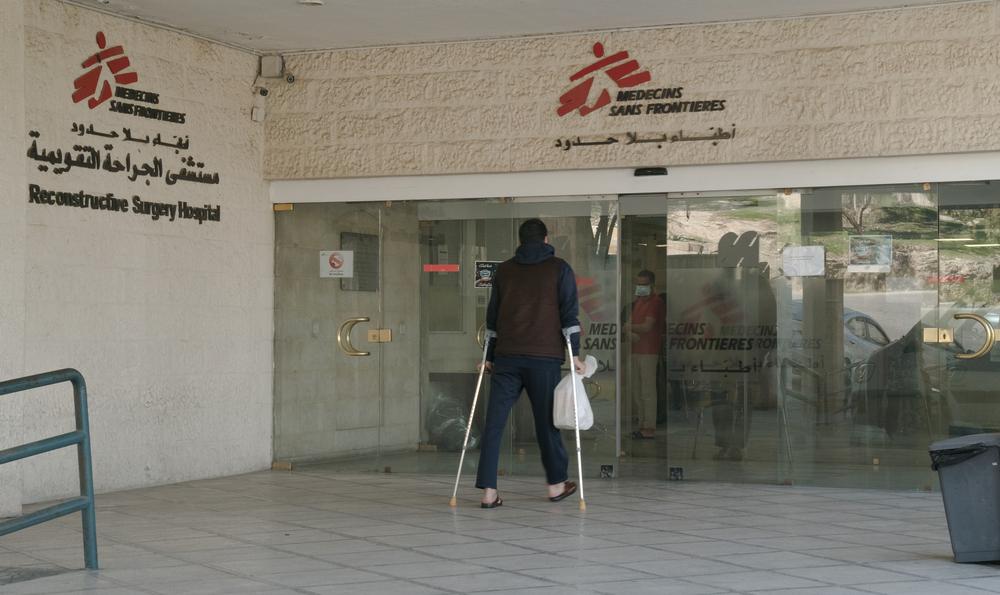
At the entrance of Amman RSP hospital in Jordan. © MSF
At the beginning of September 2015, Doctors Without Borders officially opened its newly upgraded reconstructive surgery hospital in Amman, Jordan. The hospital serves war-wounded patients from across the region who have no access to specialised surgical care in their home countries. The project was established in 2006, in response to the absence of such care for victims of the war in Iraq, and has since expanded to receive patients from Iraq, Gaza, Yemen, and Syria.
Surgeons at our Amman-based reconstructive surgery hospital operates on victims of conflicts in the Middle East whose wounds are inflicted by bomb blasts, bullets, shrapnel and burns. Research and innovation are an important part of the hospital’s programme.
When we initially opened this hospital, nobody thought we were going to stay 10 years. But after 4,500 admissions and more than 11,000 surgical interventions, it’s clear we have work for the next 10 years, and one hospital is not enough.Marc Schakal, RSP head of mission
In addition to benefitting from orthopaedic, maxillofacial or plastic and burns surgery, patients also receive physiotherapy and mental health counselling.
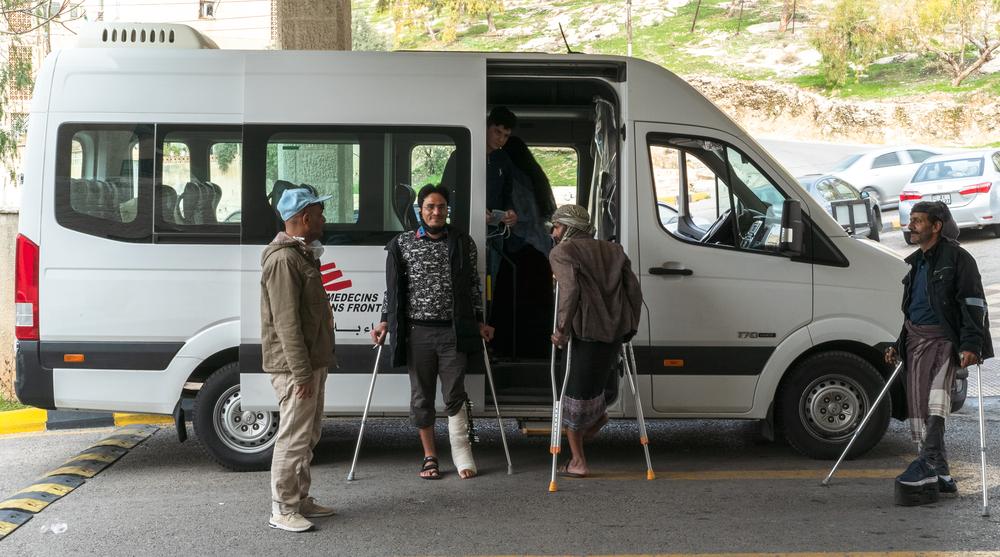
In front of Amman RSP hospital in Jordan. © MSF
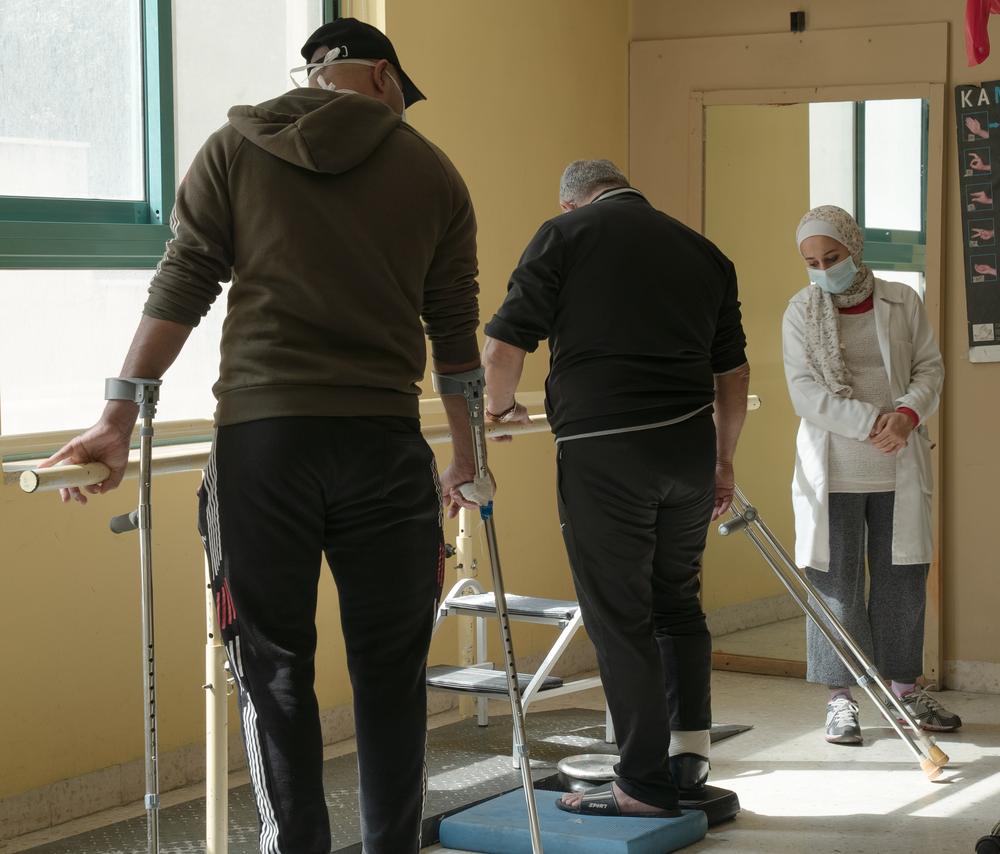
At Amman RSP hospital, in the Physiotherapy ward. © MSF
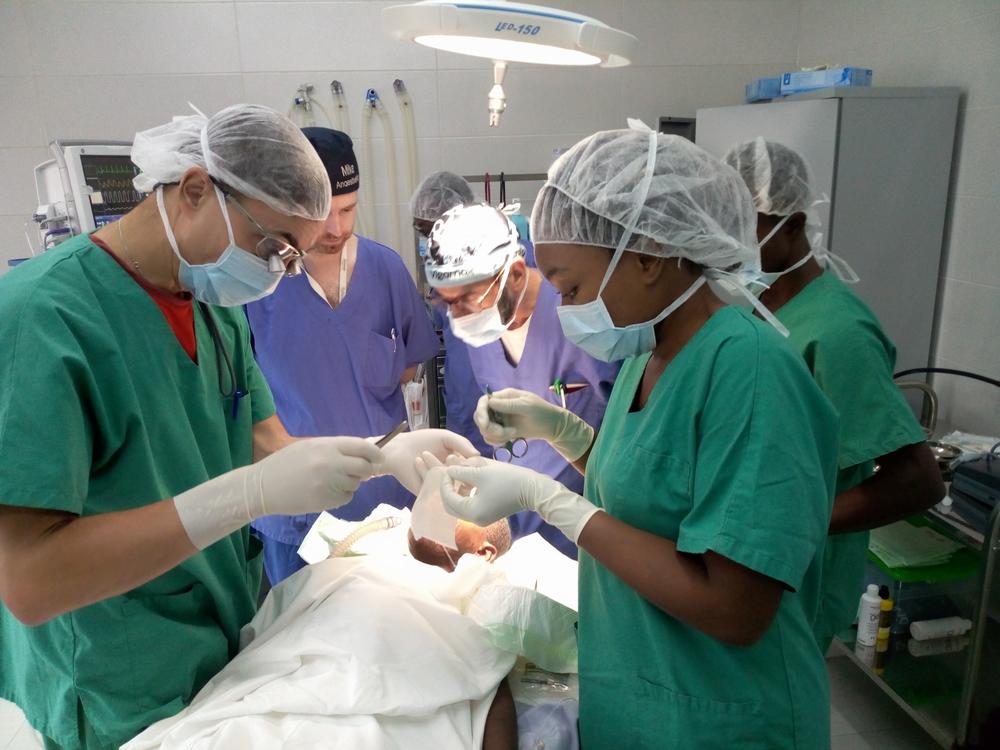
A Doctors Without Borders team performs plastic reconstructive surgery on a six-year-old boy at Doctors Without Borders' Bardnesville Junction Hospital in Monrovia, Liberia, in January 2019. He required surgery due to facial burns suffered several years ago. © MSF
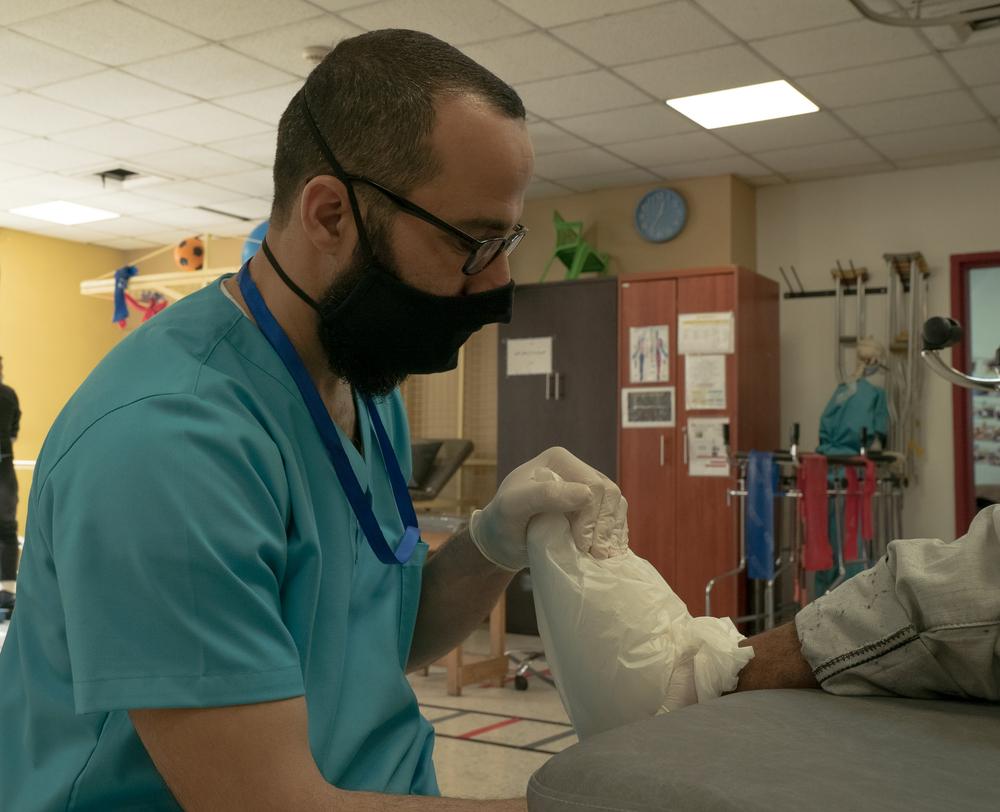
At Amman RSP hospital, in the Physiotherapy ward. © MSF
Noma, a Neglected Disease in Nigeria
Noma is a neglected disease in Nigeria that affects the most vulnerable populations, especially those living in poverty and with limited access to healthcare. The efforts of Doctors Without Borders are crucial in providing treatment and improving the quality of life for those affected by this devastating disease.
The noma hospital provides free treatment to patients, who often come from remote areas with limited access to healthcare. The hospital also conducts outreach programs to raise awareness about the disease and its prevention.
The mental health teams also provide psychological support to patients and their families during the post-operative period. Through their work, Doctors Without Borders not only restores physical appearance but also improves the mental well-being of patients affected by noma.
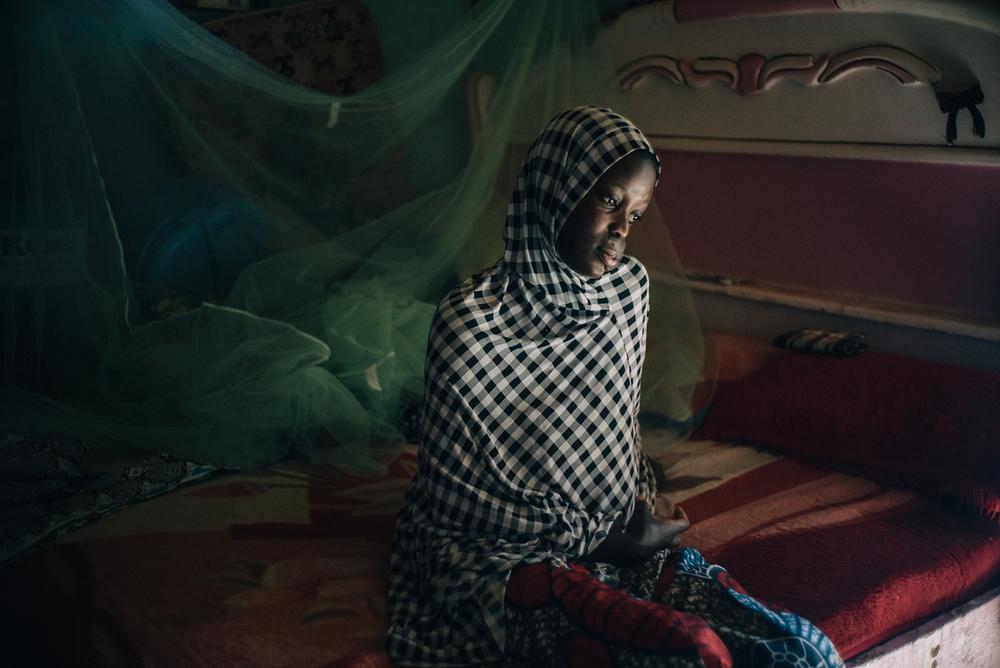
Fatima, who was disfigured by noma when she was a child, rests at home. She spent most of her days alone and could not move much because of chest pains. Fatima and her husband Dahiru met at the noma hospital in Sokoto, where they both had reconstructive facial surgeries. Fatima died during childbirth a few months after this picture was taken. © Claire Jeantet - Fabrice Caterini/INEDIZ
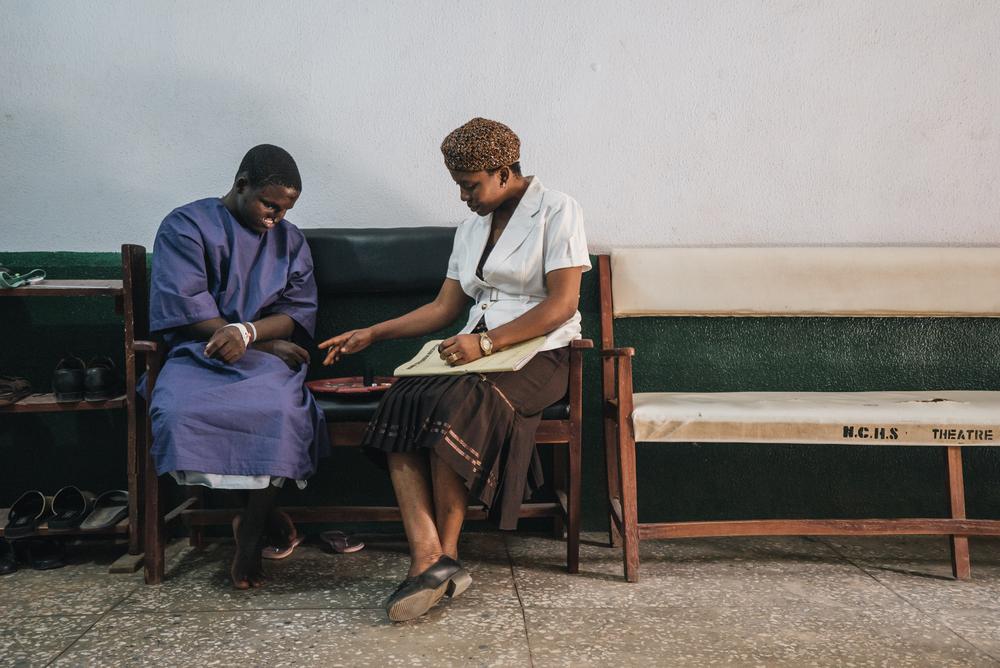
Noma survivors have to live with severe facial disfigurements that make eating, speaking, seeing or breathing hard. On top of that, survivors must deal with the social stigma caused by the horrific damage done to the face. © MSF
Supporting a young person and their family to overcome the emotional impact of the disfigurement is a core part of the counselling.Thomas Hoare, clinical psychologist
The team also worked with younger patients to help them develop social skills they may have missed out on, as patients suffering from noma are often shunned by society.
Support us
Help us provide the highest quality of surgical and medical care to our patients caught in conflict and violence, or those without access to functioning health care systems.
